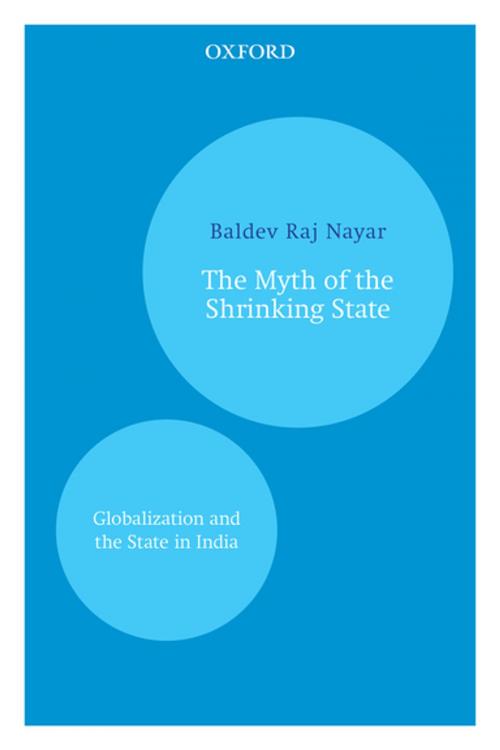The Myth of the Shrinking State
Globalization and the State in India
Business & Finance, Economics, International Economics, Nonfiction, Social & Cultural Studies, Social Science| Author: | Baldev Raj Nayar | ISBN: | 9780199088065 |
| Publisher: | OUP India | Publication: | April 29, 2009 |
| Imprint: | OUP India | Language: | English |
| Author: | Baldev Raj Nayar |
| ISBN: | 9780199088065 |
| Publisher: | OUP India |
| Publication: | April 29, 2009 |
| Imprint: | OUP India |
| Language: | English |
This study investigates the nature of the impact of globalization on the Indian state. It takes as its point of departure the thesis, set out in the introductory essay, that globalization has resulted in the erosion of the economic and welfare roles of the state. According to the author, the shift to liberalization, the resurgence of the private sector, and the acceleration of growth rate paradoxically 'empowered' and 'enabled' the state. He argues that the examination of the quantitative data strongly points to the continued expansion of the economic and welfare roles of the state, rather than decline. Therefore, the retrenchment of the state does not have much merit. He emphasizes on the fundamental continuity in the key functions of the state. He concludes by saying that the state is lagging behind in the areas of internal security, education and health, and makes suggestions for institutional reforms.
This study investigates the nature of the impact of globalization on the Indian state. It takes as its point of departure the thesis, set out in the introductory essay, that globalization has resulted in the erosion of the economic and welfare roles of the state. According to the author, the shift to liberalization, the resurgence of the private sector, and the acceleration of growth rate paradoxically 'empowered' and 'enabled' the state. He argues that the examination of the quantitative data strongly points to the continued expansion of the economic and welfare roles of the state, rather than decline. Therefore, the retrenchment of the state does not have much merit. He emphasizes on the fundamental continuity in the key functions of the state. He concludes by saying that the state is lagging behind in the areas of internal security, education and health, and makes suggestions for institutional reforms.















